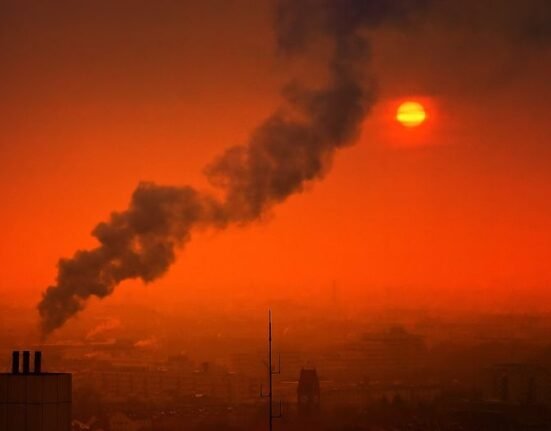HQ Team
October 26, 2022: Global oil and gas companies are clocking record profits while their production strategies undermine people’s lives and well-being by contributing to global warming, a study reveals.
As of February 2022, production strategies of 15 of the world’s largest oil and gas firms reveal they will exceed their share of emissions consistent with 1·5°C of global heating by 37% in 2030 and 103% in 2040, a Lancet report states.
The heating is “continuing to undermine efforts to deliver a low carbon, healthy, liveable future.”
The governments are continuing to incentivise fossil fuel production and consumption, adding fuel to the fire.
Fossil fuel subsidy
Of the 86 countries surveyed, 69 (80%) had net-negative carbon prices or provided a net subsidy to fossil fuels, for a total of US$400 billion in 2019.
They allocated amounts often comparable with or even exceeding their total health budgets, according to the 2022 report of the Lancet Countdown.
The wealthier nations failed to meet their commitment of mobilising the considerably lower sum of $100 billion annually by 2020 as agreed at the 2009 Copenhagen Accord to support climate action in “developing countries.”
To add to the woes, “climate efforts are being undercut by a profound scarcity of funding. The impacts of climate change on global economies, together with the recession triggered by Covid-19 and worsened by geopolitical instability, could paradoxically further reduce the willingness of countries to allocate the funds needed to enable a just climate transition.”
Elderly children at risk
As temperatures rise, vulnerable populations — adults older than 65 years and children younger than one year — were exposed to 3·7 billion more heatwave days in 2021 than annually in 1986–2005.
Heat-related deaths increased by 68% between 2000–04 and 2017–21 —a death toll that was compounded by the confluence of the Covid-19 pandemic.
“The changing climate is affecting the spread of infectious diseases, putting populations at higher risk of emerging infections and co-epidemics.
“Coastal waters are becoming more suitable for the transmission of Vibrio pathogens. The number of months suitable for malaria transmission increased by 31·3% in the highland areas of the Americas and 13·8% in the highland areas of Africa from 1951–60 to 2012–21,” it stated.
The likelihood of dengue transmission rose by 12% in the same period. The coexistence of dengue outbreaks with the Covid-19 pandemic led to pressure on health systems, misdiagnosis, and difficulties in managing both diseases in many regions of South America, Asia, and Africa.
Economic losses
The economic losses associated with climate change impacts are also increasing pressure on families and economies already challenged by the synergistic effects of the Covid-19 pandemic and the international cost-of-living and energy crises.
Heat exposure led to 470 billion potential labour hours lost globally in 2021, with potential income losses equivalent to 0·72% of the global economic output, increasing to 5·6% of the GDP in low Human Development Index (HDI) countries.
Extreme weather events caused damage worth $253 billion in 2021, particularly burdening people in low HDI countries, where people insured none of the losses.
New analysis suggests that extreme heat was associated with 98 million more people reporting moderate to severe food insecurity in 2020 than annually in 1981–2010 in 103 countries analysed.
“This situation is worsened by Russia’s invasion of Ukraine and the energy and cost-of-living crises, with impacts on international agricultural production and supply chains threatening to result in 13 million additional people facing undernutrition in 2022.”








